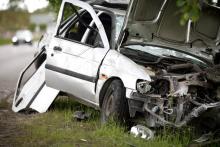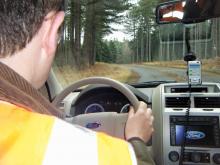The latest data available through Pan European safety body TISPOL reveals that road fatality levels have reduced in the Dublin Region in recent years. However, the information shows that pedestrians are still at risk. Since 2008, almost 40% fatal road traffic collisions involve pedestrian fatalities. A Casualty Reduction campaign has been run in the Dublin Region to tackle the problem. A key police strategy has been to improve pedestrian awareness of the dangers. Chief Superintendent Aidan Reid, head of Dub
The latest data available through Pan European safety body 4753 TISPOL reveals that road fatality levels have reduced in the Dublin Region in recent years. However, the information shows that pedestrians are still at risk. Since 2008, almost 40% fatal road traffic collisions involve pedestrian fatalities. A Casualty Reduction campaign has been run in the Dublin Region to tackle the problem. A key police strategy has been to improve pedestrian awareness of the dangers. Chief Superintendent Aidan Reid, head of Dublin’s Traffic Corps said, "This is not solely an enforcement issue. We must get drivers to slow down, particularly in 30km/h and 50km/h zones, but also appeal to pedestrians to ensure they do everything to remain safe on the roads. This is particularly relevant in relation to pedestrians who may have been drinking. Getting home safely is what everyone wants, so when out socialising be responsible and don’t overdo it.
"The figures speak for themselves, if a pedestrian is hit by a vehicle at 60km/h there is an 85% chance of a fatality, however if hit at 30km/h the chance of a fatality is only 5% and the survival rate is 95%."
"The figures speak for themselves, if a pedestrian is hit by a vehicle at 60km/h there is an 85% chance of a fatality, however if hit at 30km/h the chance of a fatality is only 5% and the survival rate is 95%."








